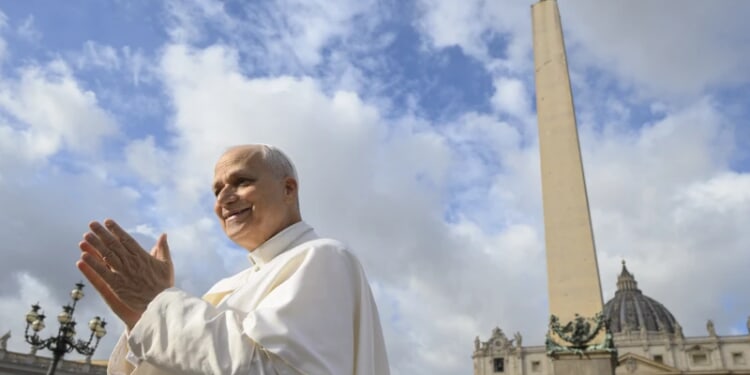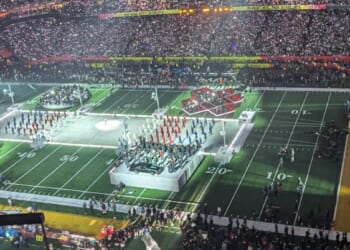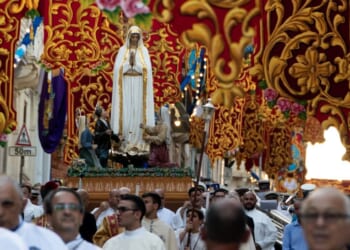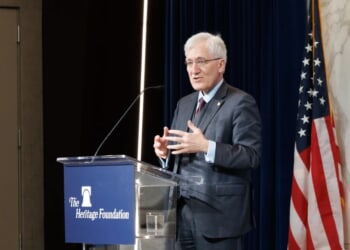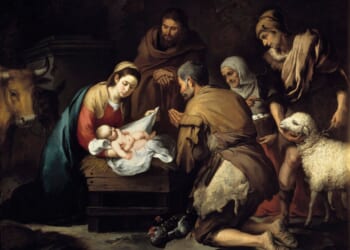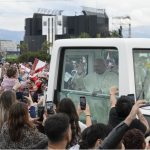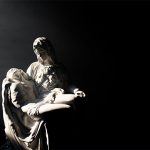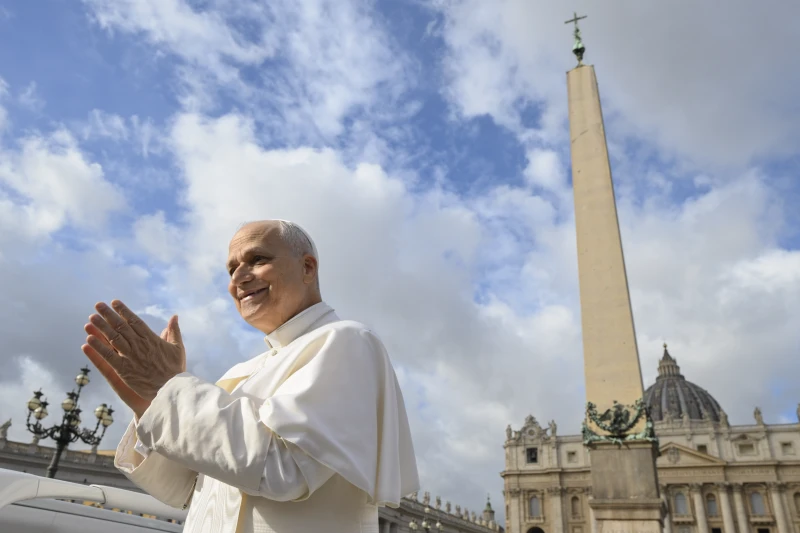 Pope Leo XIV claps with pilgrims during an audience for the Jubilee of Hope in St. Peter’s Square on Oct. 25, 2025. / Credit: Vatican Media.
Pope Leo XIV claps with pilgrims during an audience for the Jubilee of Hope in St. Peter’s Square on Oct. 25, 2025. / Credit: Vatican Media.
Vatican City, Oct 25, 2025 / 13:00 pm (CNA).
Pope Leo XIV on Saturday said the key to living in a difficult time, when the Church’s teachings are often challenged, is to embrace the hope that is “not knowing.”
“As pilgrims of hope, we must view our troubled times in the light of the resurrection,” the pope said in an audience with jubilee pilgrims in St. Peter’s Square Oct. 25.
Leo brought attention to Nicholas of Cusa — a Catholic cardinal and theologian from Germany, who lived in the 15th century — as a model for how to live one’s faith “during a turbulent era that involved serious spiritual divisions.”
The pope described Nicholas of Cusa as “a great thinker and servant of unity” who “can teach us that hoping is also ‘not knowing.’”
“As St. Paul writes, ‘How can one hope for what one already sees?’” Leo said. “Nicholas of Cusa could not see the unity of the Church, shaken by opposing currents and divided between East and West. He could not see peace in the world and among religions, at a time when Christianity felt threatened from outside.”
But instead of living in fear like many of his contemporaries, Nicholas chose to associate with those who had hope, the pontiff explained.
Nicholas, Leo said, “understood that there are opposites to be held together, that God is a mystery in which what is in tension finds unity. Nicholas knew that he did not know, and so he understood reality better and better. What a great gift for the Church! What a call to renewal of the heart! Here are his teachings: make space, hold opposites together, hope for what is not yet seen.”
Pope Leo said the Church is experiencing the same thing today: questions challenging the Church’s teaching, from young people, from the poor, from women, from those without a voice or who are different from the majority.
“We are in a blessed time: so many questions!” he said. “The Church becomes an expert in humanity if it walks with humanity and has the echo of its questions in its heart.”
“To hope is not to know,” Leo underlined. “We do not already have the answers to all the questions. But we have Jesus. We follow Jesus. And so we hope for what we do not yet see.”

